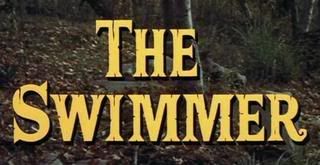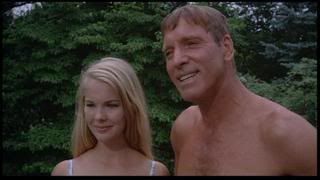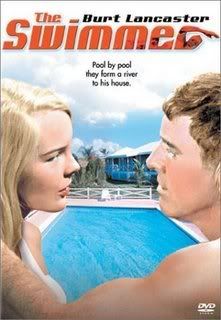 Director: David Fincher
Director: David FincherStarring: Jake Gyllenhaal, Mark Ruffalo, Anthony Edwards, Robert Downey Jr., Brian Cox, Chloe Sevigny, John Carroll Lynch, Elias Koteas, Running Time: 158 min.
Rating: R
**** (out of ****)
I've been waiting ten years for this day to come. The day when I no longer have to constantly justify and defend David Fincher's place among America's greatest living directors. That place, in case you haven't guessed, is at the top and now it is rightfully secure. In 1997 Fincher directed a film called The Game that completely changed how I viewed motion pictures and challenged my perceptions of what they can do. Then in 1999 he did it again with Fight Club. Now, with Zodiac he's made what stands thus far as the best film of 2007. Hands down. It may not break the creative boundaries those other two films did, but it is a technical masterwork deserving of a Best Picture nomination come January.
Fincher, a director who has previously existed only on the fringe, can now sit at the table with the big boys. He's earned it. This is certainly his most mature, mainstream endeavor to date and the Motion Picture Academy of Arts and Sciences have run out of excuses this time. He deserves a nomination if not a statue for this. An expert at directing films with high concepts, this time he takes a simple, minimally complex police procedural and turns it into a gripping, terrifying film that doubles as a deep character study. And we're not just talking about one character either, but many. Major ones and minor ones. There wasn't a single person in the film I didn't care about and not a minute of this film's admittedly lengthy two and a half hour running time that I felt should have been cut. I sat on the edge of my seat the entire time, glued to the screen by what I watching. I like to think I can go into any movie without any preconceived notions, but when you enter David Fincher's universe there comes a certain set of expectations. This film exceeds them.
The film, based on Robert Graysmith's two non-fiction books (Zodiac and Zodiac Unmasked) is epic in scope and covers a thirty-year period starting in the 1960's when a serial killer known as "The Zodiac" terrorized the San Francisco Bay Area. He left a trail of victims and taunted the police with numeric codes (known as ciphers) and letters to the San Francisco Chronicle stating his intentions. He was never caught and to this day the case remains unsolved. The film begins with the shooting of Darlene Ferrin and Mike Mageau at lover's lane in Vallejo on July 4, 1969. Mike survives. Darlene doesn't. One of the many fascinating details about this killer and the case is that he gets so caught up in killing the women he often forgets to finish off the guys.
Police Detectives Dave Toschi (Mark Ruffalo) and Bill Armstrong (Anthony Edwards) and are almost out of necessity forced to work with the staff of the San Francisco Chronicle, who have been receiving cryptic letters from the fame seeking Zodiac that he wants printed on the front page. The top beat crime reporter for the paper at the time is the booze and drug addicted loose cannon Paul Avery (Robert Downey Jr.), but soon the case attracts the attention of the Chronicle's political cartoonist Robert Graysmith (Jake Gyllenhaal). The first half half of the film focuses primarily on the initial investigation into the case during the late 60's and early 70's and how it consumes and nearly destroys the lives of the police and journalists investigating it.
What's most interesting is that Zodiac is far from a criminal genius (an old married couple even solves one of his ciphers), but the police cannot catch him mainly because of poor communication, stupid decision-making, politics and red tape. As a result, more and more people die and his rampage continues. By the time the film's over we realize that if just one eyewitness had been questioned all of this could have stopped. This is a movie we shouldn't even be watching. Sensing this weakness in the system, Zodiac wisely spreads his murders across different counties correctly assuming each police precinct has their agenda and can't possibly work together to solve any crime.
The saddest part of this is that if these murders were to occur today he probably would have been caught in a week, yet because of limitations in communication and technology the terror rages on. The Zodiac killings, more than anything else, are a reflection of the time. Fincher understands this and milks it for everything he can. The police departments become so tangled up in their incompetence that they begin to panic and suspect Zodiac may even be taking credit for murders he didn't commit sending the whole case into a tailspin. He craves celebrity and notoriety even going so far as to contact well-known television broadcaster Melvin Belli (the great Brian Cox) to get his point across. In a funny touch Belli seems genuinely excited and intrigued to be talking to a serial killer and Cox brings the same eccentric panache to this role as he did to his loony psychiatrist in last year's Running With Scissors.
After this, it becomes clear to the police the only predictable pattern of Zodiac is that he has no predictable pattern. Toschi and Armstrong are two smart, dedicated detectives who do everything right but fail because the system around them doesn't work. In one memorable scene Armstrong tries to send information to another police precincts but discovers they don't have a fax machine. The look on his face says it all. Against all odds, and largely due to that dedication, they finally zero in on a main suspect. He's a convicted child molester named Arthur Leigh Allen (John Carroll Lynch) and all the signs point to him being the guy. Unfortunately, while the circumstantial evidence may add up, the physical evidence doesn't. They also must deal with the self-destructive Avery, whose desire to put his name on the journalistic map jeopardizes their case and his life. All these characters are in a free fall and watching fascinated from the sidelines is cartoonist Robert Graysmith.
It isn't until 1974, four years after Zodiac's last attack that Graysmith launches a personal investigation of his own and falls into the trap of obsession that befell the detectives and his own colleague Avery. Except, unlike the police investigation years earlier Graysmith's is actually effective and what he uncovers puts himself, his wife Melanie (Chloe Sevigny) and his children in danger and even raises the ire of Zodiac himself. One the best moments of the film comes when he states that he won't stop this until he's standing in the same room with the killer, looks him straight in the eye and knows it's him. Whether that line has a payoff I cannot reveal, but how ironic that a mild-mannered cartoonist could unlock the mysteries of one of the greatest unsolved mass murders in our country's history, but the police couldn't. A tricky situation develops here because audiences know going in that Zodiac was never caught and the case was never closed, so the film is practically forced into an ambiguous ending. James Vanderbilt's brilliant screenplay gives us that ambiguous ending, but at the same time leaves us completely satisfied. The case may not have an ending, but this movie does have a clear and emotionally powerful one that will haunt you for a long time.
Movies that span over decades or hinge on recreating certain time periods are among the most difficult to film and once again Fincher employs his trusted cinematographer Harris Savides, whom he's worked with previously on Seven and The Game (which was also set in San Francisco). According to Savides the goal this time out, unlike those films, was to shoot it in a way that wouldn't sensationalize anything. The result is that the movie almost has a washed-out documentary style to it, very much reflecting the time period it's set in. The newsroom scenes are very clearly inspired and influenced by All The President's Men. So many directors go too far when a movie is set in the 60's and 70's bombarding us with visual gimmickry and littering the soundtrack with every top 40 hit from the decade. Fincher knows that just one song placed at just the right time during a film can make a huge impact. In The Game it was Jefferson Airplane's "White Rabbit." In Fight Club it was The Pixies' "Where is my Mind?" This time it's Donovan's "Hurdy Gurdy Man," and when the film's over, you'll be hearing it in your nightmares. I know I am.
That's the thing with Fincher films. You're just there. No games. He doesn't need to rely on any tricks or crutches. All the details are right but they're never distracting or call attention to themselves because the story and the characters are always front and center. Ironically, while it may seem like Fincher is doing his least, in doing it he's actually achieving the most. Watch the scene with Graysmith and Melanie on the their first date at the restaurant and pay attention to the subtle clues Fincher drops that this date is really their future. The roles they play at that table are the ones they'll play when they're married. It'll be a mess, but one they'll have to share in together. Under Fincher's skillful eye, Gyllenhaal and Sevigny put on an actor's clinic in a scene that would just be a throwaway in another film.
Then there are the killings themselves. The first two murders in the film (especially the second) are among the most horrifying I've ever seen in a major motion picture. Not because they're gory or bloody, but because Fincher makes the moments leading up to them pure emotional torture. You feel like screaming and crying for the victims because you know what's coming, even if they don't. He plays with that idea for a while and let's us think about it. Hard. This is the first time I can remember wanting the killings to get going because the waiting was scarier than anything we could possibly be shown. Then when they came I wanted to take that wish back.
A lot of important characters come and go through the course of this nearly three hour film, so unexpectedly, there are a lot of memorable performances, one of which I think is Oscar worthy. You may be surprised which one that is. Mark Ruffalo continues his streak of strong leading man work as nearly entire first half of the film belongs to him and Anthony Edwards, and they actually have a somewhat thankless task if you think about it. They must deliver copious amounts of police exposition, while at the same time give affecting portrayals of two honest, loyal men being dragged to the depths of Hell by this case. They're the moral conscience of this story. Their scenes could have played like a re-run of CSI but they don't beacuse they keep us engaged. It's also great to see Edwards, long underrated, find the right big screen role in his post-E.R. career.
Robert Downey Jr. again excels at the role he's always been best at: playing damaged goods. If anything, I wish he had a little more screen time, but it's a miracle Fincher even fit all these people in and gave them an adequate showcase at just under three hours. Gyllenhaal's Graysmith is not your typical Fincher protagonist. The first half of the film he could almost be described as a self-reflective wallflower just standing in the corner and observing. It isn't until the third act of the film where he shows us what he's got. A lot of people have complained that Gylenhaal really doesn't appear to age throughout the film not even looking old enough to have a wife and three kids. I agree to an extent, but I don't think it has a huge bearing on the effectiveness of the story or his performance. He's solid here.
In 2005 the Academy nominated William Hurt for Best Supporting Actor for A History of Violence even though he appeared in basically one scene and for no longer than 10 minutes. It was well deserved. Here's hoping History repeats itself and John Carroll Lynch is rewarded with one for his role as Arthur Leigh Allen, the man who may or may not be Zodiac. He makes that same kind of impact here, with just as little screen time. Lynch, a character actor, probably best known for playing Marge Gunderson's loyal husband in Fargo, really does have just one big scene. That scene, however, is the most important one in the movie.
We may never know who Zodiac is, but when he's questioned, Lynch's Allen somehow in just a few minutes and with only a couple of lines of dialogue meets our most frightening expectations of who the man behind that mask could be. This is clearly an actor who did his homework on Allen as little details about the real man subtly manifest itself in his performance, including everything from speech inflection to physical mannerisms. Even if he's not Zodiac, he's the creepiest, scariest person you could imagine encountering and you'd see why he'd be considered a prime suspect for any crime, not just this one.
This film has been criticized as being "overlong." "Overlong" means scenes have been added to pad the film's running time. This movie is not overlong. I could have watched ten hours more. I'm not going to lie though. It certainly would play better for someone like myself who's incredibly interested in the subject matter. I could easily relate to Graysmith's obsession with the case, as the details surrounding it are endlessly fascinating on many different levels. It's not too often I urge people not to purchase the DVD of what may end up being the best film of the year but that's exactly what I'm doing here. DO NOT BUY THIS DVD. Apparently Fincher was forced by the studio to commit to the scheduled DVD release date even though he was preparing a special edition director's cut he told them couldn't possibly be ready on time.
So what we have now is a bare bones single disc release of the theatrical version with a trailer in front of it for his director's cut to be released in 2008. This director's cut will include commentaries, deleted scenes, and an in-depth look at the actual Zodiac killings with witness accounts. I'll have to lock myself in the house, take the phone off the hook and plant myself in front of the tv for days when that comes out. Fincher was put in a tough position here and apparently was none too happy about it as he's stated the last thing he wants to be accused of is taking advantage of consumers by double dipping on a DVD release. I don't blame him. Everyone should just rent this version to tie them over for now, then wait until early next year to buy the director's cut. Here's hoping it comes out earlier to coincide with a strong Oscar campaign for the film.
Of the many cryptic notes sent from the Zodiac, one leaves the most lasting impression. It reads: "I am waiting for a good movie about me." He gets a great one. But you can't fight the uneasy feeling that maybe he's still out there and knows it. If that's not enough to send chills down anyone's spine, I don't know what is. Unfortunately, by making such a brilliant film about one of our country's greatest unsolved cases, Fincher may have also given this deranged killer exactly what he wished for all along.
















